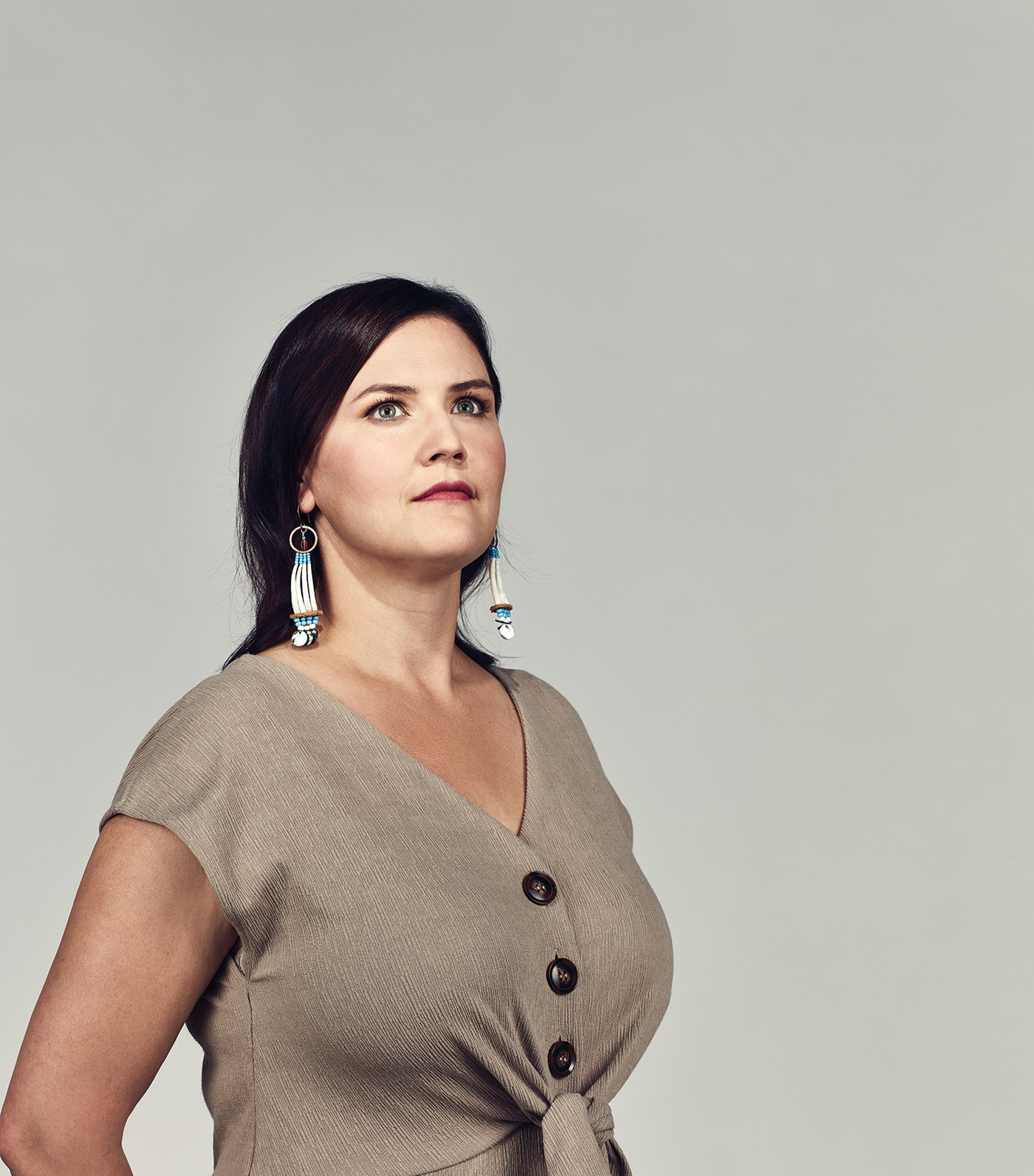SKIPP Co-Directors

Dr. Kisha Supernant (Métis/Papaschase/British) is the Director of the Institute of Prairie and Indigenous Archaeology and an Associate Professor in the Department of Anthropology at the University of Alberta. An award-winning teacher, researcher, and writer, her research interests include the relationship between cultural identities, landscapes, and the use of space, Métis archaeology, and heart-centered archaeological practice. Her research with Indigenous communities (including Métis and First Nations) in western Canada explores how archaeologists and communities can build collaborative research relationships. She leads the Exploring Métis Identity Through Archaeology (EMITA), a collaborative research project which takes a relational approach to exploring the material past of Métis communities, including her own family, in western Canada. She is currently a co-director of a new interdisciplinary research project on Métis kinscapes of Lac Ste Anne, Alberta with a team of Indigenous scholars. Recently, she has been increasingly engaged in using remote sensing technologies to locate and protect unmarked burials around residential schools. She has published in local and international journals on GIS in archaeology, collaborative archaeological practice, Métis archaeology, and indigenous archaeology in the post-TRC era. In 2019, she was named to Edmonton’s Top 40 under 40 by Avenue Magazine, and in 2021, she was elected as member of the Royal Society of Canada College of New Scholars. She is also a current Métis Director on the Board of the Indigenous Heritage Circle.
In 2020, Dr. Supernant was co-editor on two volumes: Archaeologies of the Heart with Springer and Blurring Timescapes, Subverting Erasure: Remembering Ghosts on the Margins of History with Berghahn Books.
 Dr. Hillier was born and raised in Stephenville Newfoundland, a small town on the west coast of the island in traditional Mi'kmaq territory. She belongs to the Qalipu First Nation. In addition to her academic career, Dr. Hillier was a member of the Canadian Armed Forces for 27 years. She joined the Faculty of Medicine and Dentistry in 2012 and was the first Indigenous Associate Dean for a Medical School Program in Canada and the first to include an Indigenous elder within the medical program leadership team as an advisor to the team and as a full-time support for learners in the Faculty. In addition to her new role as co-director of SKIPP, she is Executive Dean and Director of the Alberta Institute, an international medical school collaboration, a member of the Indigenous advisory council for the University of Alberta and the Indigenous Engaged Research Strategy Task Force. She continues as a mentor for Indigenous Medical Students in the Faculty of Medicine and Dentistry and is a member of the Indigenous Physicians Association of Canada.
Dr. Hillier was born and raised in Stephenville Newfoundland, a small town on the west coast of the island in traditional Mi'kmaq territory. She belongs to the Qalipu First Nation. In addition to her academic career, Dr. Hillier was a member of the Canadian Armed Forces for 27 years. She joined the Faculty of Medicine and Dentistry in 2012 and was the first Indigenous Associate Dean for a Medical School Program in Canada and the first to include an Indigenous elder within the medical program leadership team as an advisor to the team and as a full-time support for learners in the Faculty. In addition to her new role as co-director of SKIPP, she is Executive Dean and Director of the Alberta Institute, an international medical school collaboration, a member of the Indigenous advisory council for the University of Alberta and the Indigenous Engaged Research Strategy Task Force. She continues as a mentor for Indigenous Medical Students in the Faculty of Medicine and Dentistry and is a member of the Indigenous Physicians Association of Canada.
She is an Associate Professor in the Department of Radiology and Diagnostic Imaging at the University of Alberta. She completed her MD (1997) and a residency in family medicine (1999) at McMaster University. She practiced family medicine at the Canadian Forces Base in Edmonton. She later completed a residency in radiology and diagnostic imaging at the University of Alberta and a fellowship in emergency trauma radiology at the University of British Columbia (2011). She has a Master’s in Education from the University of Alberta (2016).
Dr Hillier is passionate about social accountability and improving health care for diverse and marginalized populations. Her interest in Global Health has led her to provide primary care medical services in a remote area of La Ceiba, Honduras. She completed a study tour in Tanzania, looking at development projects that address the primary determinants of health. In 2010, she spent two months in Leogane, Haiti, immediately following the earthquake, where she was involved in setting up a field hospital with radiology services to provide medical care to the local population.
Dr. Hillier’s research and scholarly interests include curriculum development using a decolonizing and anti-oppressive approach. She has led extensive MD Program curricular renewal with increased focus on the social determinants of health and the significant health disparities that exist between Indigenous and non-Indigenous Canadians. She has been actively involved in promoting student and community-led curricular change. She has a long-standing interest in improving the mental health and wellbeing of learners and communities. She led a review of medical school admissions for the University of Alberta with the goal to identify and remove barriers to increasing diversity in the medical student population. As a result of her commitment to diversity, inclusivity, and equity, Dr. Hillier was selected as a recipient of a University of Alberta Equity, Diversity and Inclusion award. She counts amongst her greatest accomplishments being the proud mother of 5 (not so young) children.